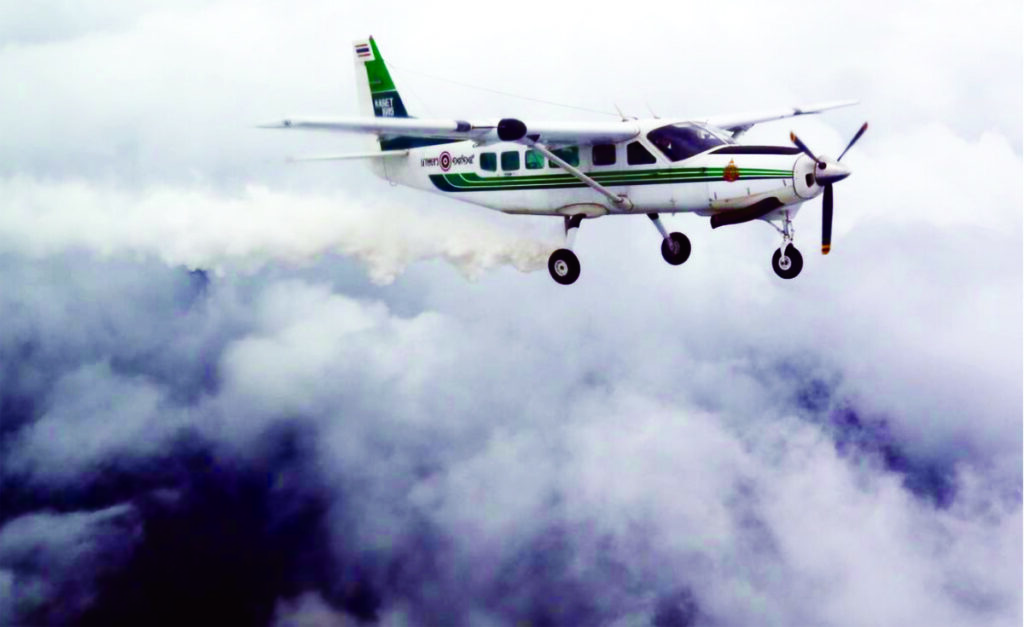
Beirut, the main port of Lebanon, was struck by a twin explosion on the 4th of August, 2020, causing massive destruction and leading to the loss of several lives. The devastating blasts have resulted in the loss of more than 200 lives and have injured as many as 6000 people .
Although the cause of the first explosion, around 14:00 hours, still remains a mystery, the succeeding, more deadly one, resulted from the explosion of 2,750 metric tones of ammonium nitrate from a nearby fire at the port, causing widespread damage to areas even beyond 20 kilometers from the port region, leaving nearly 300,000 people homeless.
ECONOMIC DECLINE

The country was already undergoing political and economic turmoil and ailing from the effects of the pandemic when it was hit by the horrific explosions.
In October 2019, the value of the Lebanese pound depreciated by 75% of its official value in the black market which was a big blow to the economy of Lebanon and created several problems for such an import-dependent economy, making imports extremely expensive and inaccessible to many. As imports started getting expensive, so did the price of essentials, which forced people to sell their personal belongings in exchange for necessary commodities like milk and bread .
This along with extensive corruption by the political elite, mismanagement of the country’s reserves and the financing of immense fiscal deficits of the government by the Central Bank at exceptionally high rates, gradually pushed the economy into hyperinflation . The biggest economic defeat of Lebanon was defaulting on foreign debt worth $1.2 billion Eurobond in March 2020 , which led to a global decline in Lebanon’s reputation in terms of its creditworthiness.
The blasts have caused further economic decline with low scope for revival. Nearly 1 million people in Lebanon are below the poverty line, and there is an increased vulnerability among the others owing to the massive destruction. The blasts have caused severe structural damage, destroying five out of seven UNICEF-supported vaccine cold rooms. News reports indicate that the region has faced losses worth $10 to $15 billion, repairing which is an impossible task considering the economic scenario in the country.
The blasts led to the destruction of the main grand silo at the Beirut port, which housed 85% of the country’s food grains. This has left the entire economy with less than a month’s supplies to sustain on, thus, causing a vast supply chain gap. This gap is further widened by the destruction of the Beirut port, the biggest port of Lebanon, as it will remain inoperable unless urgent repairs are made. This will have severe implications for the supply chains of the economy as rerouting the vessels to the nearby Tripoli port, to sustain the consumption needs of the people, will be a near-impossible task, owing to its relatively smaller size, and will only lead to congestion .
THE PROTESTS

Since October, the people have been protesting against the government due to a variety of reasons including regular blackouts, some lasting more than 22 hours, increase in the prices of subsidized bread, the main staple of the economy, and an extreme shortage of oil and diesel. These protests had come to a halt owing to the pandemic.
However, the blasts have re-ignited the protests all over the country as angry crowds have taken to the streets to lament the losses caused by the explosions. The ongoing investigation into the matter , by the committee set up by the President, is not enough consolation for the people who believe that the disaster could have been easily avoided by the government, had it been more competent and taken care of the explosives which have been at the port since 2013, despite several warnings to safely discard it.
CONCLUSION
The situation in Lebanon is worsening on a daily basis with the members of the administration stepping down from their posts to fight for change, alongside the public, after Prime Minister Hassan Diab blamed endemic corruption to be the main cause of the explosion .
Hani Bohsali, head of the importers’ syndicate, is of the belief that “only an international consensus” can save Lebanon from this disaster . However, the International Monetary Fund will not provide monetary backing to the government unless the government finally takes responsibility for years of mismanagement and corruption with the intent to bring about a positive revolutionary change to the country and undergoes reformation with the intent to implement a radical change in policies for the betterment of the people.
Written by: Soumili Basu
REFERENCES
- (n.d.). Explained: Why has the Beirut explosion caused widespread …. Retrieved August 14, 2020, from https://indianexpress.com/article/explained/beirut-explosion-lebanon-protests-explained-6549667/
- (2020, August 5). Lebanon: Beirut Port Explosions – ReliefWeb. Retrieved August 14, 2020, from https://reliefweb.int/sites/reliefweb.int/files/resources/Beirut%20Port%20SitRep%20No.%202.pdf
- (2020, June 30). Lebanese government raises subsidised bread prices as …. Retrieved August 14, 2020, from https://www.reuters.com/article/us-lebanon-crisis-bread-prices/lebanese-government-raises-subsidised-bread-prices-as-currency-tumbles-idUSKBN2412YT
- (2020, July 6). Lebanon’s Economic Crisis Is Spinning Out of … – Bloomberg. Retrieved August 14, 2020, from https://www.bloomberg.com/news/articles/2020-07-07/lebanon-s-economic-collapse-is-gathering-pace
- (n.d.). Lebanon follows Venezuela into hyperinflation wilderness …. Retrieved August 14, 2020, from https://www.reuters.com/article/us-emerging-inflation-graphic/lebanon-follows-venezuela-into-hyperinflation-wilderness-idUSKCN24O20J
- (2020, March 12). Lebanon defaults on debt for first time ever – The Jerusalem Post. Retrieved August 14, 2020, from https://www.jpost.com/middle-east/lebanon-defaults-on-debt-for-first-time-ever-620637
- (2020, August 5). After blast, Lebanon has less than a month’s grain reserves …. Retrieved August 14, 2020, from https://www.reuters.com/article/us-lebanon-security-blast-wheat/after-blast-lebanon-has-less-than-a-months-grain-reserves-idUSKCN251190
- (2020, August 11). Lebanon president accepts gov’t resignation after Beirut blast …. Retrieved August 14, 2020, from https://www.aljazeera.com/news/2020/08/lebanon-pm-hassan-diab-resigns-anger-beirut-blast-200810135202076.html
- (2020, August 8). Lebanon to examine possible ‘external interference’ in port blast. Retrieved August 14, 2020, from https://www.cnbc.com/2020/08/08/lebanon-to-examine-possible-external-interference-in-port-blast.html
- (2020, August 5). Lebanon: Beirut Port Explosions – ReliefWeb. Retrieved August 14, 2020, from https://reliefweb.int/sites/reliefweb.int/files/resources/Beirut%20Port%20SitRep%20No.%202.pdf
- (2020, August 11). Scientists Map Beirut Blast Damage – NASA Earth Observatory. Retrieved August 14, 2020, from https://earthobservatory.nasa.gov/images/147098/scientists-map-beirut-blast-damage




